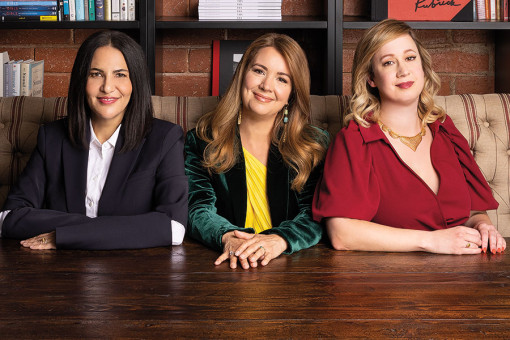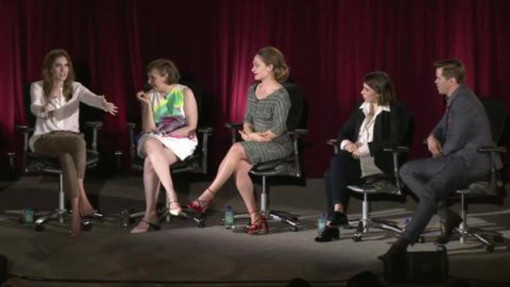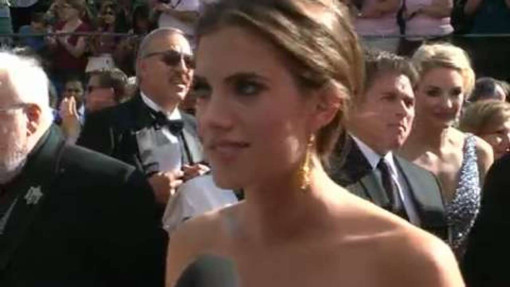Writing a show called Girls, one might naturally assume that we are deeply committed to our female characters.
And, yeah, we are. They are the lifeblood of the show and their relationships are its beating (if broken) heart.
Our male characters have been criticized by opinionators from James Franco to Kareem Abdul-Jabbar (both honors, actually) who felt we were writing half-baked men, two-dimensional female fantasies of dumb-dude misbehavior. But what they may not realize is that we are the men of Girls.
The men of Girls are us. We occupy them, maybe even more than their female counterparts — you just have to dig around a little bit.
Consider that, last week, Jenni embarked on a bold and upsetting new habit: writing irate letters to customer-service reps. After decades on the planet not doing this, she was suddenly overcome with the need to address daily acts of incompetence head-on.
A few days ago, for example, she forwarded Lena this note she’d sent to a popular car-service app: “I waited over 10 minutes for a car. He came and parked across and down the street, nowhere near my address. Then he had me wait five minutes and canceled the ride. I requested another car, and the wait time jumped from three to six minutes, so I canceled. I should not have to pay for that ride. Please let me know how you plan to proceed.”
“I’ve become Jack Nicholson in About Schmidt,” Jenni texted with the saddest of emojis.
“No,” Lena said. “You’ve actually become Ray.”
And the fact is — if we look across the rainbow of Girls characters — we would have to situate Jenni’s spirit-color somewhere between caustic baristo Ray Ploshansky (played by Alex Karpovsky), and Tad Horvath (Peter Scolari), a loving, closeted dad trying to live out loud.
In Ray, we see a man who feels obligated to point out the world’s myriad injustices and — when that isn’t enough — actually do something about them. He takes pleasure in obscure medical knowledge and fine foods and avoiding juvenile drama at all costs (let’s just say, you couldn’t manage the cast of Girls for seven years if you were a Marnie at heart).
Ray is a kind of twisted optimist, his biting sense of humor belying a belief that the world can be made better through small, daily acts of kindness. Lena thinks this also pretty accurately describes her work partner and best friend.
Jenni’s other brain-baby is Tad: loving and repressed, passionate and lonely. Jenni cannot explain why her truth is often most powerfully channeled through a man aging his way out of the closet. This is probably the 19th closeted male character she’s written, but we’ll leave the major analysis to a professional.
It’s certainly about more than the GLAAD Award that she is begging for (please, put this woman out of her misery). It’s about exploring not just the wild, horny id of our reckless women, but the sense of honor, duty and painful responsibility that some people cannot help but wear as their ball and chain.
Lena, meanwhile, may be indistinguishable physically from Hannah (same tattoos, same vagina, totally different relationship to Cool Whip), but she finds shards of herself in all our boys. The inability of Adam (Adam Driver) to separate love from a kind of obsessive perversity and tireless testing of boundaries is not just a reaction to the men Lena loved and lost in her 20s — it’s the way she loved and lost them.
And the belief of Elijah (Andrew Rannells) that he’d have it all — namely, his sanity — if he could just ditch this gang of losers and hangers-on is the kind of delusion people in Al-Anon rooms across the world hang on to.
But moreover, characters like Joshua (Patrick Wilson), Chuck (Matthew Rhys) and even Charlie (Chris Abbott) allow her to discuss the lonesome creature comforts of adulthood, the corrosive effects of fame and the loss of some wild, precocious hope in its wake.
Only with these burly actor dudes is Lena afforded the safety of distance, something female television creators are almost never granted. When Larry David drives a prostitute through the carpool lane in Curb Your Enthusiasm, it’s commentary. When a woman analyzes her body and her privilege, she’s navel-gazing and delusional.
No wonder there is safety in channeling ourselves through men. They are allowed to be broken and still be loved. They always have been.
We’ve often been asked over the years whether it’s hard to write the guys. Ask Judd Apatow — he’s a full Shoshanna! Matching genitalia is not what ensures a connection to one’s characters, and indeed, we are beginning to understand as a culture just how random and oppressive notions of gender can be and have been.
And while, of course, lived experience contributes to a writer’s ability to tell a story, we might argue that male privilege is the easiest thing to imagine (we’ve been watching it since we were born) — and the safest place to hide. Meanwhile, Jenni and Ray are busy writing aggressive “Dear Sir” letters to small-time travel agencies, like the spiritual twins they are.
Eight-time Emmy nominee Lena Dunham created, starred in and often directed Girls, which ended its six-season run on HBO this spring. She and her best friend, two-time Emmy nominee Jenni Konner, were also writers and executive producers, as was Judd Apatow. The series — which also starred Allison Williams as Marnie, Jemima Kirke as Jessa and Zosia Mamet as Shoshanna — remains available on demand and on HBO Go.
This article originally appeared in emmy magazine, Issue No. 6, 2017










